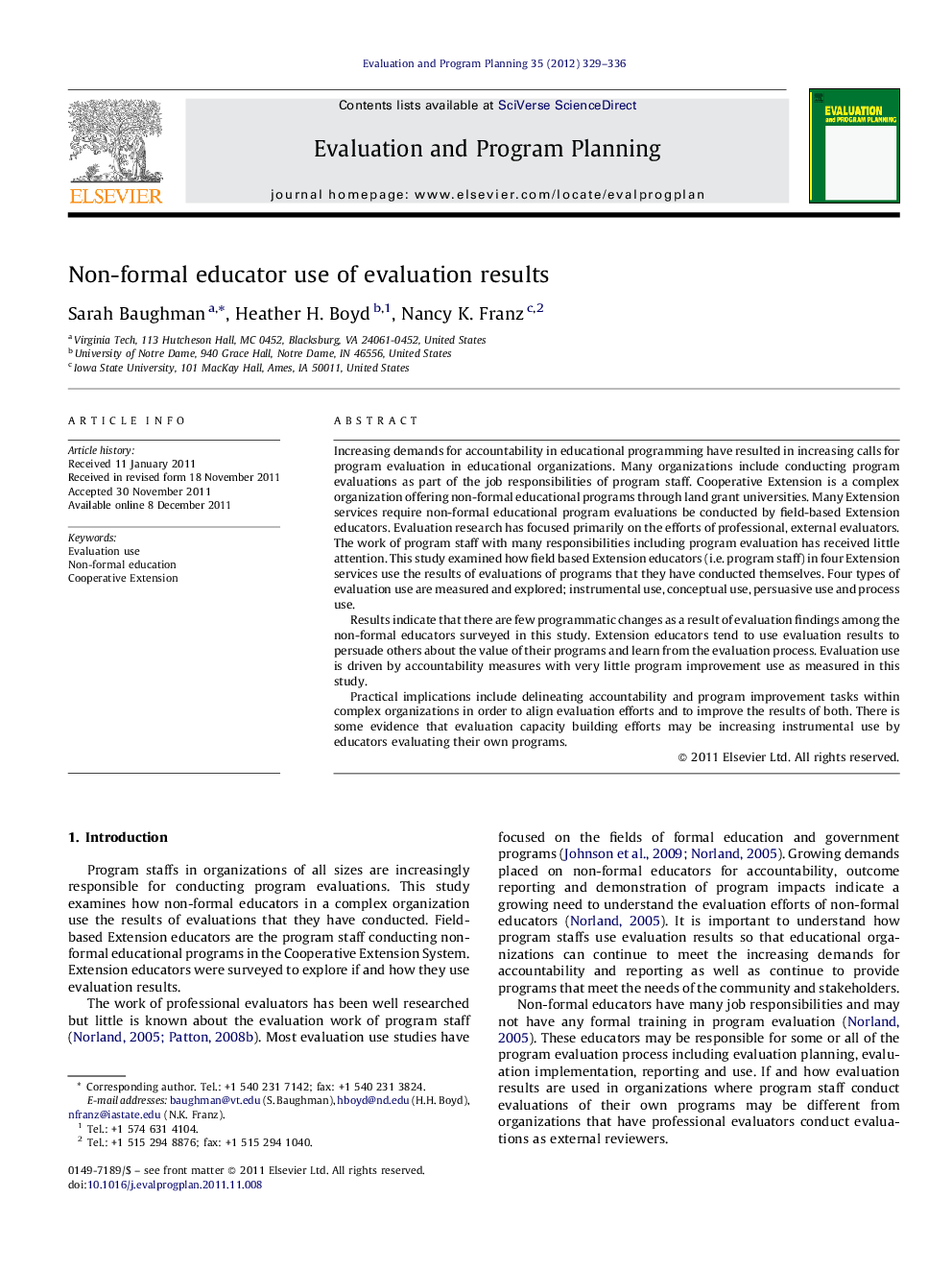| Article ID | Journal | Published Year | Pages | File Type |
|---|---|---|---|---|
| 322279 | Evaluation and Program Planning | 2012 | 8 Pages |
Increasing demands for accountability in educational programming have resulted in increasing calls for program evaluation in educational organizations. Many organizations include conducting program evaluations as part of the job responsibilities of program staff. Cooperative Extension is a complex organization offering non-formal educational programs through land grant universities. Many Extension services require non-formal educational program evaluations be conducted by field-based Extension educators. Evaluation research has focused primarily on the efforts of professional, external evaluators. The work of program staff with many responsibilities including program evaluation has received little attention. This study examined how field based Extension educators (i.e. program staff) in four Extension services use the results of evaluations of programs that they have conducted themselves. Four types of evaluation use are measured and explored; instrumental use, conceptual use, persuasive use and process use.Results indicate that there are few programmatic changes as a result of evaluation findings among the non-formal educators surveyed in this study. Extension educators tend to use evaluation results to persuade others about the value of their programs and learn from the evaluation process. Evaluation use is driven by accountability measures with very little program improvement use as measured in this study.Practical implications include delineating accountability and program improvement tasks within complex organizations in order to align evaluation efforts and to improve the results of both. There is some evidence that evaluation capacity building efforts may be increasing instrumental use by educators evaluating their own programs.
► We examine how non-formal educators working for Cooperative Extension use the results of evaluations they conduct. ► Exploratory factor analysis identified four types of evaluation use: process use, persuasive use, conceptual use and instrumental use. ► Extension educators were found to use the results of their evaluations primarily to persuade others of the value of their programs and to learn from the evaluation process. ► Evaluation use is driven by accountability measures rather than desire for program improvements resulting in few programmatic changes based on evaluation results.
